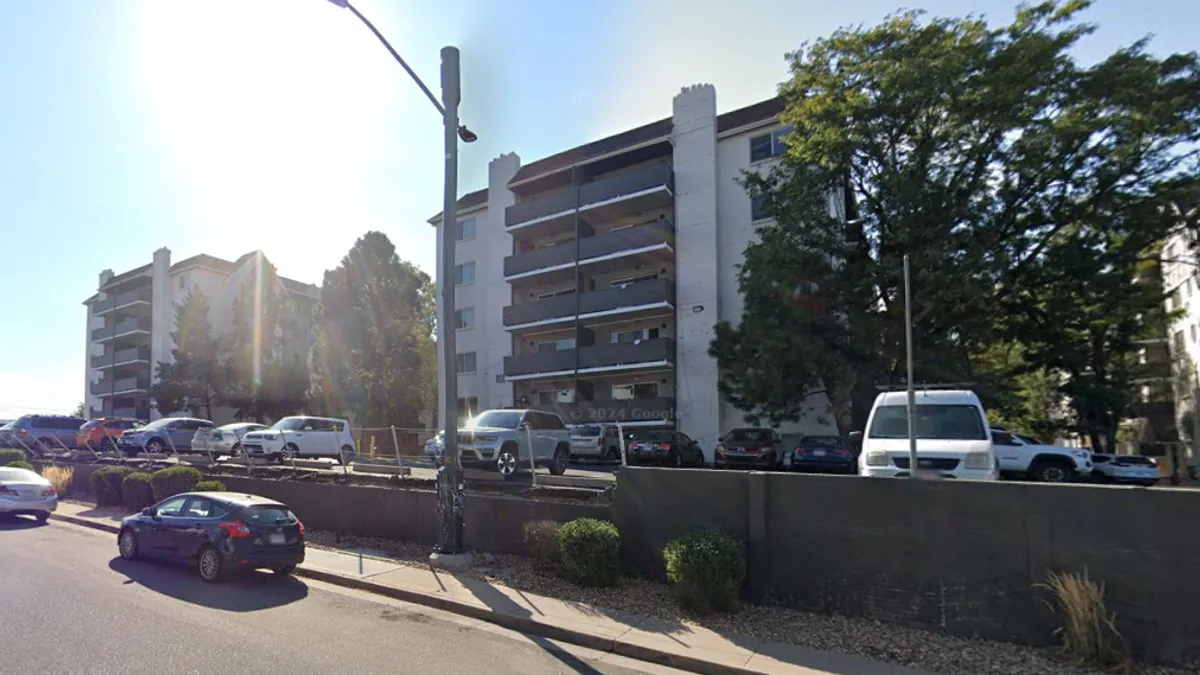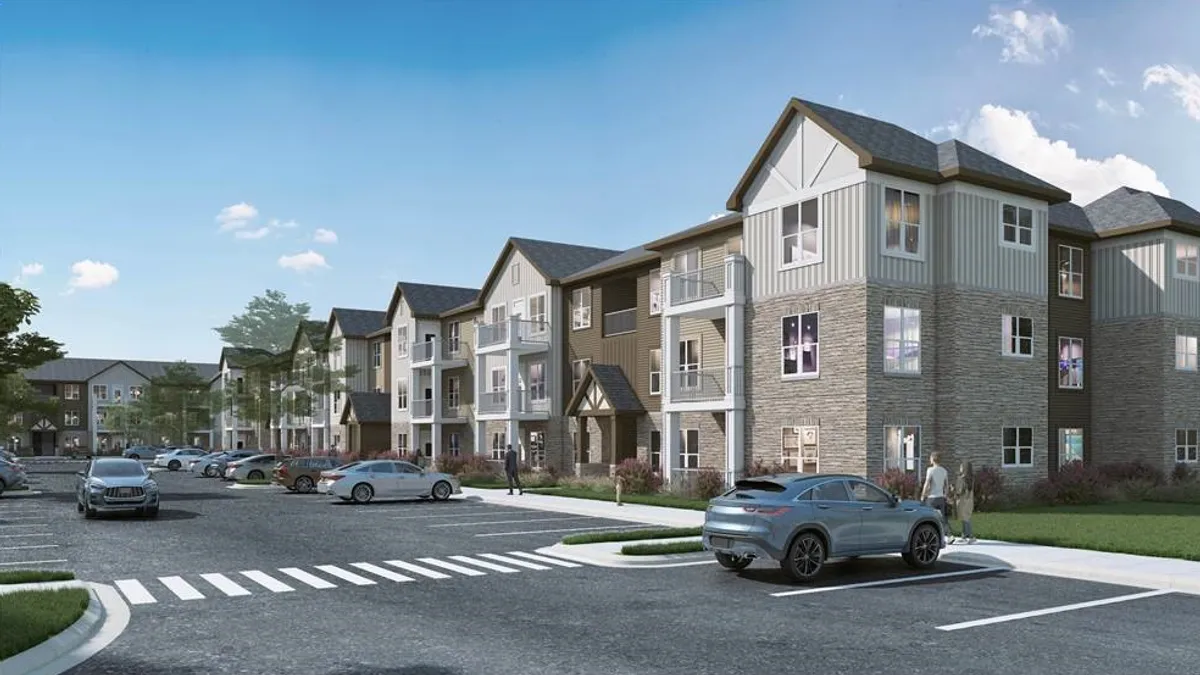Following an eight-day trial in the U.S. District Court of Colorado, a jury has ruled that the owners and former operator of the Mint Urban Infinity Apartments in Denver must pay a total of over $13.5 million to their current and former tenants for violating the state’s warranty of habitability law, according to Denver7.
Over 200 current and former Mint Urban tenants filed a class action lawsuit against Denver-based Cardinal Group Management and New York City-based Glendale Properties I and II — holding companies for Singapore-based Mapletree Investments — on Oct. 22, 2021, according to court documents. Neither Cardinal nor Mapletree have responded to requests for comment from Multifamily Dive.
The plaintiffs claimed that Mint Urban — a nine-building, 561-unit property — had been misrepresented to them in Cardinal’s advertising, which allegedly promoted the property’s newly renovated pool, elevators and air conditioning. Instead, they allegedly found all three of these amenities were either nonfunctional or frequently broken.
In the lawsuit, plaintiffs also reported chronic issues with the property’s plumbing, broken doors and door locks, broken air conditioning, leaking roofs, cracks and holes, overflowing trash receptacles and dumpsters, broken lighting, unsanitary common areas and broken and unsanitary laundry facilities.
Specific incidents at the property include an entire summer in which the air conditioning did not function and a period in which the property did not have a front door for six months, according to Denver7.
“Defendants refused to make necessary repairs, including with respect to critical, featured amenities like elevators and air conditioning, as required by Colorado law and/or their form lease agreements,” the lawsuit reads. “Indeed, despite knowing about the need for such repairs for years, defendants refused to authorize and perform them, choosing instead to continue to falsely advertise to tenants prospective and current alike that such amenities were fully functioning and available.”
The property also allegedly charged tenants a pest control fee of $2 per month, even if it did not render pest control services, and a move-out fee of twice the unit’s rent if they did not provide 60 days’ written notice of intent to move out, according to the lawsuit.
The plaintiffs sought to prevent the defendants from collecting this move-out fee, collecting rent, advertising the property or charging fees until the issues were remedied, according to court documents. They also sought damages for breaches of “legal and contractual duties.”
In its response to the complaint, Cardinal denied the majority of the plaintiffs’ allegations about the condition of the property or that they had misrepresented it in advertising. Glendale Properties, in its response to the court, stated that supply chain issues related to the COVID-19 pandemic, as well as staffing issues, contributed to delays in the property’s repairs during that period. It also claimed that it allowed residents to break their leases penalty-free during the long air conditioning outage.
In the trial, which began on March 3, a jury ruled that Cardinal and the owners had violated Colorado’s warranty of habitability law, which obligates landlords to fulfill specific requirements to make a property fit for human habitation. These include weather protection, appropriate extermination for pests and maintaining public spaces in good repair.
The award is equivalent to a 31.42% rent reduction for all tenants living at Mint Urban between Oct. 22, 2018 and June 28, 2022, plus damages of $200 per unit per month during this timeframe, according to CBS Colorado. The plaintiffs’ legal team estimates that more than 2,000 tenants would benefit from this ruling.
Cardinal, ranked No. 34 on the NMHC Top 50 Managers list, manages more than 54,000 units across the country. Atlanta-based Cortland took over management of Mint Urban Infinity Apartments from Cardinal in 2022. Cortland is not named in the lawsuit.











